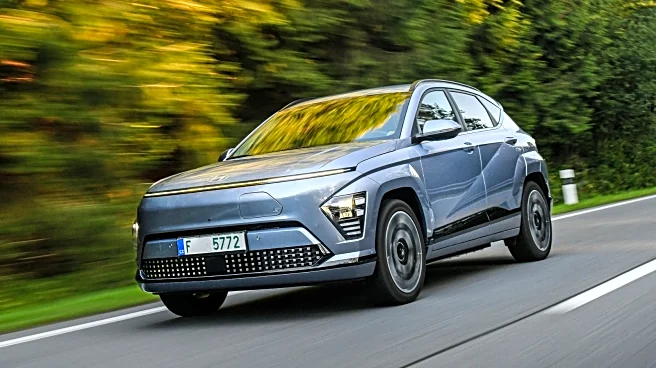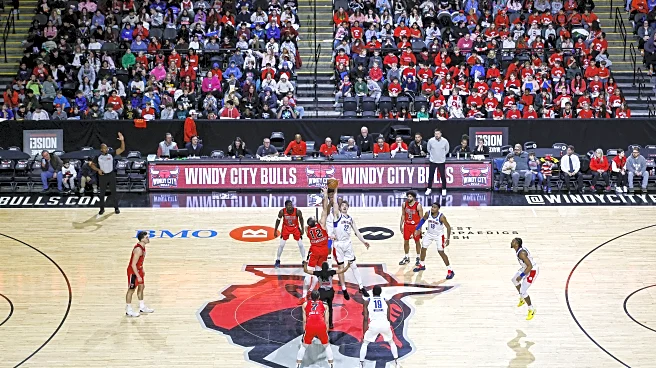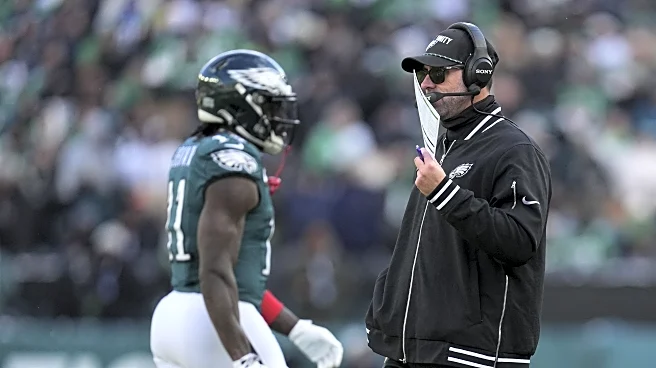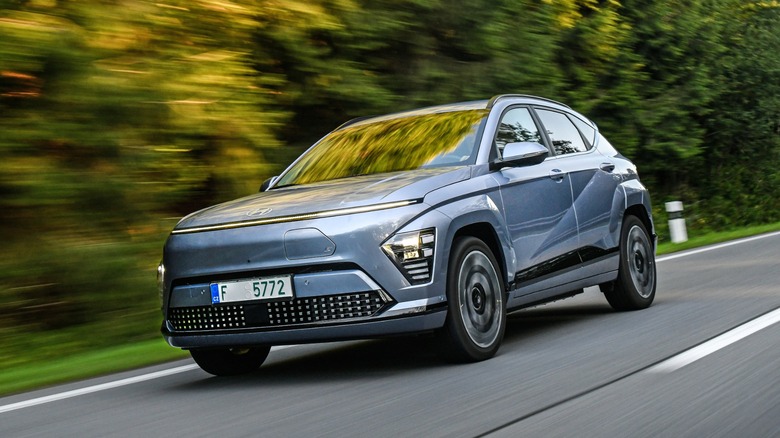
The new car market in the U.S. isn't living its best days. While analysts expect car sales in 2025 to equal those of 2024, reaching about 16 million purchases, it doesn't take an expert to notice that not all is well. Sticker prices have been climbing, for example, and the uncertainty about President Trump's tariffs and their effect on sales looms over the whole industry.
Let's make one thing clear: Most buyers don't pay the full MSRP on cars. Even with sticker prices climbing ever higher, Americans
aren't overpaying that much for cars; or rather, they usually don't. Unfortunately, there are a handful of vehicles that are notably bad deals, at least according to Consumer Reports (CR, from now on). CR crunched numbers from partner site TrueCar to come up with a list of the year's worst car deals, all of which tend to be priced between 4% to 7% higher than their base MSRP.
The eagle-eyed among you will notice that we use the phrase "base MSRP," and there's a reason for that: CR is judging these deals based on a vehicle's starting price sans destination fees, which isn't something most buyers ever pay for. This decision could make CR's report less accurate, and we'll discuss why at the end of our list. For now, here are some new car deals that Consumer Reports suggests you steer clear of.
Read more: 10 Toyota Models With Terrible Resale Value
Toyota Corolla Hybrid
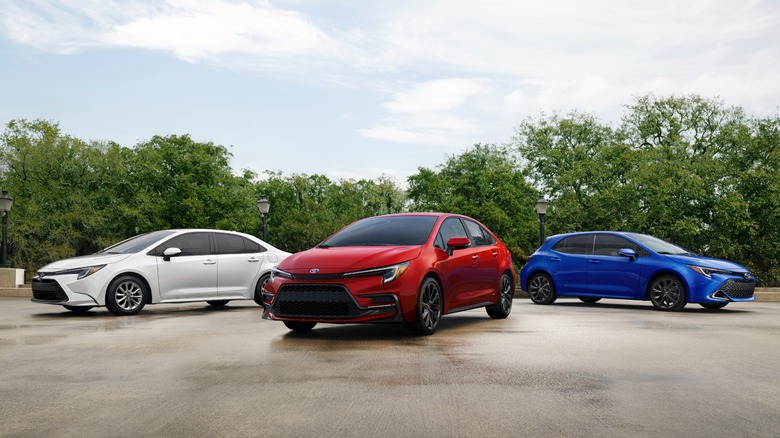
Quite a few of the "bad deals" Consumer Reports has identified consist of cars selling at 4% above MSRP, and that includes the Toyota Corolla Hybrid. Specifically, it's the SE AWD version we're talking about, which CR pegs as having an average transaction price of $28,676. That's $1,011 over the 2025 model's base MSRP of $27,665. You're not getting an exciting car for that inflated outlay, either — we tested the 2024 Corolla Hybrid and found it dull and uninspiring, even if it's well-equipped for the price.
Of course, there are good reasons to go for a Corolla Hybrid, starting from its excellent fuel economy. The EPA estimates that the FWD Corolla Hybrid fuel economy is 47 MPG combined, dropping to 44 MPG for the AWD. If a family-friendly size and great fuel economy are your priorities, then you could really do a lot worse than the Corolla Hybrid, even if this specific trim level isn't as great a deal as others. The entry-level Hybrid LE, which TrueCar lists with an average transaction price of $24,409, seems to be the better choice overall.
This may all be academic, though, as Toyota is releasing an updated Corolla Hybrid for 2026 with improvements that could make it a more appealing choice. These include digital instrument clusters across the board, as well as blind-spot and rear cross-traffic monitoring. The 2026 Corolla Hybrid XLE also gets a new 12.3-inch infotainment screen, if you're willing to stretch the budget a bit.
Toyota RAV4 Hybrid
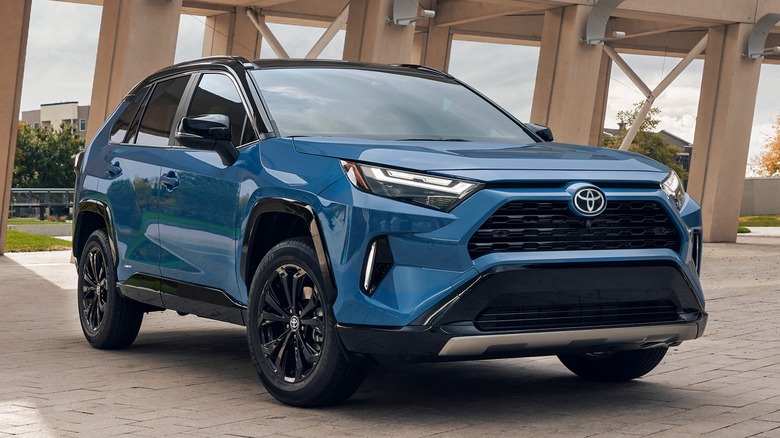
Another Toyota selling for 4% above its MSRP is the RAV4 Hybrid. Like the Corolla Hybrid, the trim level in question is the SE AWD, which sits at the higher end of the RAV4 product stack and has a price to match. According to the manufacturer, the RAV4 Hybrid SE AWD has a basic MSRP of $35,295, but CR's number-crunching shows that this particular version of Toyota's best-selling vehicle is selling for $36,671 on average, nearly $1,400 over the odds.
To be clear, the RAV4 Hybrid is a great SUV. We tested the 2025 RAV4 Hybrid and came away impressed. Even if it didn't offer the most inspiring driving experience, it did everything that a compact SUV needs to do well, as evidenced by its impressive sales in 2025. On that front, while the SE AWD may not be a great deal, nothing's stopping you from going for any of the six other trim levels if you're after a safe and sensible hybrid crossover.
It remains to be seen whether this premium will persist for the 2026 RAV4, which looks like an interesting prospect. The 2026 RAV4 boasts changes inside and out, pairing a bold new redesign with more power, an updated interior, and a rejigged trim hierarchy. That said, the company is ditching the gasoline engine for the 2026 model year, so those of you not keen on a hybrid will want to seek out a 2025 RAV4 while they're still around.
Toyota Sienna
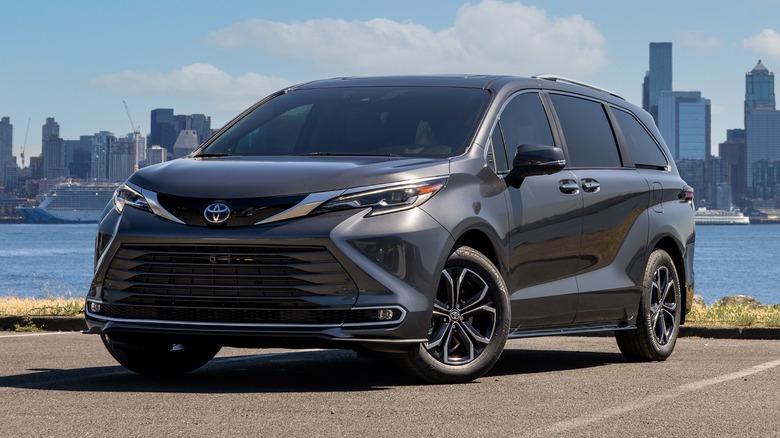
Toyota is one of the few automakers still selling a minivan in the U.S. Unfortunately for admirers of the minivan, Toyota's sole American-market offering, the Sienna, is one of CR's worst car deals of 2025. The Sienna isn't nearly as popular as Toyota's passenger car or SUV offerings like the Corolla and RAV4, with only 52,000 units sold by the end of Q2 2025 (compared to nearly 240,000 for the RAV4), but that doesn't mean you're necessarily going to get a good deal on one.
According to CR's research, buyers of the 2025 Sienna XLE have been paying a 4% premium, shelling out $44,252 on average. That's $1,667 over the $42,585 MSRP CR's comparing against. However, it's worth noting that CR's quoted MSRP is closer to Toyota's 2024 MSRP for the Sienna XLE; The 2025-2026 MSRP (before delivery fees) for the long-lived Honda Odyssey rival sits at $44,295 for the seven-seater, FWD version.
If you're wondering why the MSRP jumped roughly $2,000 between 2024 and 2025, it's because Toyota introduced a selection of welcome updates to the 2025 Sienna. These include USB-C ports, wireless Apple CarPlay and Android Auto, and larger infotainment screens. While it might be a bad deal in CR's eyes, the 2025 Sienna offers a lot more than the older models.
Toyota Corolla Cross
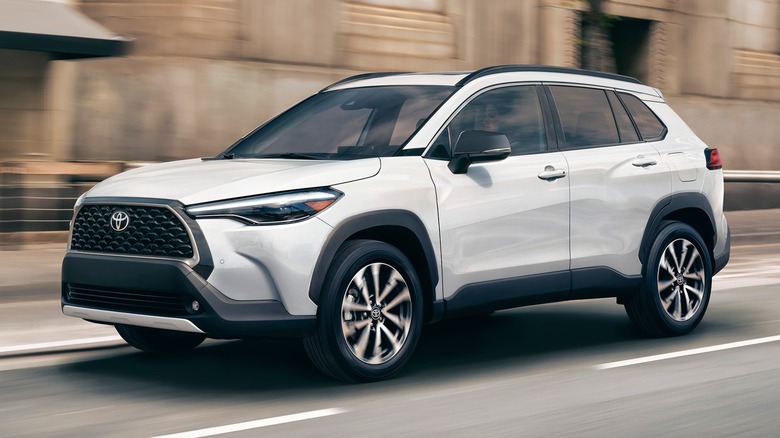
Toyota's Corolla Cross is a relatively new twist on the storied Corolla nameplate, which debuted in the U.S. in 2022. The Cross is a solid entry into the market, with the 2024 Corolla Cross Hybrid earning praise for its compelling price and great safety tech. That said, the value proposition for the 2025 Corolla Cross may not be quite as strong as its predecessors, given that it's selling for 4% more than MSRP according to CR.
While the percentage is identical to many other cars here, the Corolla Cross has the smallest price premium in actual dollar value thus far. CR notes that buyers paid $998 extra on top of the $24,135 it lists for the Corolla Cross L. If you don't feel like doing the math, that makes for an average transaction price of $25,133. That's not too bad, to be honest, especially if you're in the market for a subcompact crossover. The Toyota Corolla Cross is a reliable SUV, too, even if a few buyers have expressed regrets at not buying a RAV4 instead.
That $25,133 average transaction fee is higher than the $24,635 MSRP (before destination fees) Toyota lists for the 2026 Corolla Cross, so it's understandable that some consider it a poor deal. However, the 2026 Corolla Cross underwent a few positive changes, with a more modern front fascia and new grilles — pleasingly color-matched on the Corolla Cross Hybrid — alongside an updated interior, which might justify the price for some buyers.
Kia Seltos
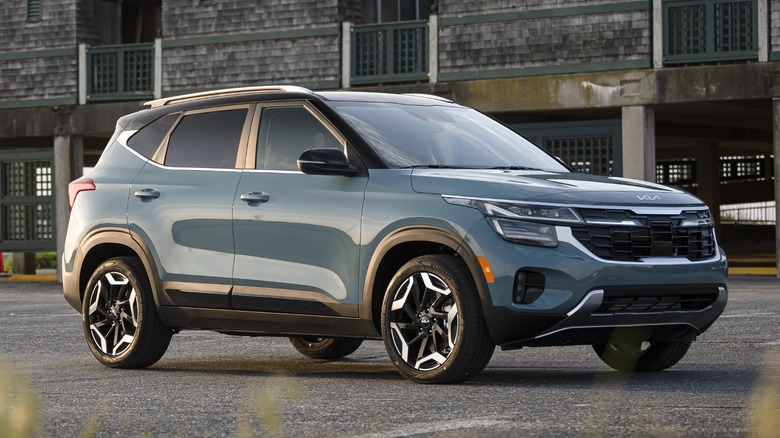
The Kia Seltos, like the Toyota Corolla Cross, is a relatively new small SUV, having been introduced in 2020. It's not been without its controversies in the years since, with 2021 to 2023 Seltos models subject to an engine-related recall first announced in 2025. It was a particularly troubling recall, too, with affected models potentially catching on fire, but that's a topic for another time.
2025 models are thankfully free of the issue — at least, as far as we know — but that doesn't mean they're not without faults. While it's generally likable, as we found out when we tested a 2024 Seltos, the problem with this vehicle comes down to the price buyers have been paying for it in 2025. Consumer Reports' research indicates that new Seltos models have changed hands for an average of $25,730. That's $1,040 above the $24,690 MSRP that Kia lists for the entry-level LX AWD trim. You do get AWD as standard, at least, but that won't be enough to make up for the premium for everyone.
TrueCar numbers indicate that all the trims are selling above their recommended MSRPs, too, but that may be a side effect of a few trims having both FWD and pricier AWD versions, with the latter skewing the averages higher. It's worth noting that Kia has been testing an updated, boxier-looking Seltos, with automotive media expecting a 2026 or 2027 model year release, but details are so thin on the ground that it shouldn't sway you away from buying a Seltos now — if the 4% premium doesn't, that is.
Chevrolet Trax
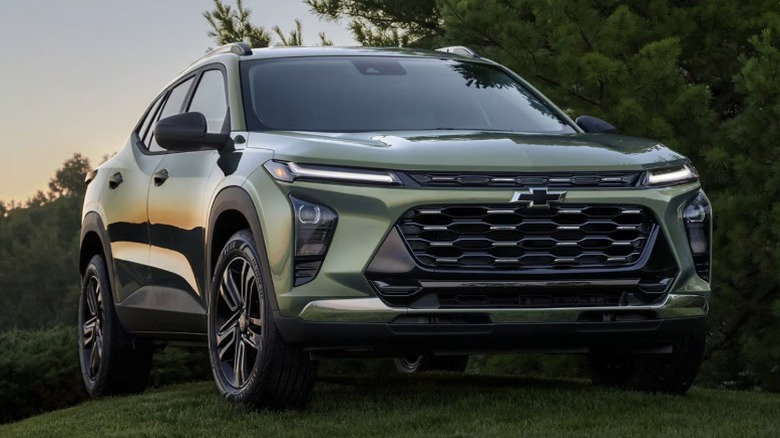
The Chevrolet Trax is one of the best-selling SUVs in 2025 thus far, with GM moving nearly 120,000 units in the first six months of the year. Yet it's also one of the worst deals of the year. As CR points out, the otherwise excellent 2025 Chevrolet Trax requires buyers to pay an average of $23,727 for its mid-tier LT trim. That's a not-insignificant 4% bump — $1,027 extra — over the $22,700 MSRP the likeable SUV commands.
What's worth noting is that while CR considers this a bad deal, buyers weighing up a 2026 Chevy Trax would probably welcome the chance to pay just under $24,000 for one. The 2026 Trax LT starts at $23,100 before any destination fees, with the total package coming in at $24,495 once you add Chevy's $1,395 freight charge. That $23,727 doesn't look quite as bad as it did a minute ago, doesn't it?
Now, we wouldn't say the Trailblazer is the best choice at this price, but it's worth considering. With it, you get AWD, a 155-hp 1.3-liter EcoTec, and nine-speed transmission. The 2026 Trax LT, in contrast, is FWD, has a 137-hp 1.2-liter, and a six-speed transmission. So, if you want a Trax, you're probably better off with one of the lower-end trims — as it is, the higher-end 2026 Trax versions seem a bad deal anyway you slice it, even at MSRP.
Hyundai Kona Electric
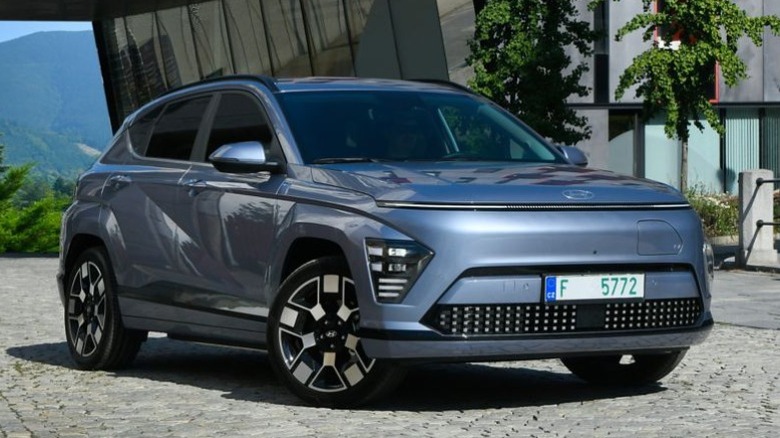
Hyundai makes some spectacular EVs, with the 2025 Ioniq 5 N being one of our favorite. However, the automaker also has some less-exciting offerings for the practically-minded, such as the Kona Electric SE. The SE is the entry-level version of its EV SUV, with the 133-hp EV boasting an MSRP of $32,975. Buyers in 2025, however, have been paying 5% more, which comes out to $34,614 — $1,639 extra, one of the highest increases on this list.
Part of the appeal of the Kona has always been its value, with even higher-end trims like the 2025 Kona Electric N being praised for its affordability and styling, among other strengths. The Kona Electric SE's higher-than-expected average transaction price does diminish this strength slightly, and it appears to be a model-wide issue: TrueCar data shows that all four trim levels sell for more than the MSRP. According to that data, the highest-end Kona Electric Limited looks to be the best deal, with buyers paying "only" $1,000 above the recommended price.
The 2025 Kona Electric hasn't changed that much compared to the 2024 model, with the only notable changes being the addition of the N Line trim and the expansion of features like exterior vehicle-to-load (V2L) charging to all models in the range. So, unless you're keen on the N Line or need V2L, a lightly used 2024 Kona Electric might be a compelling alternative.
Mitsubishi Outlander Sport
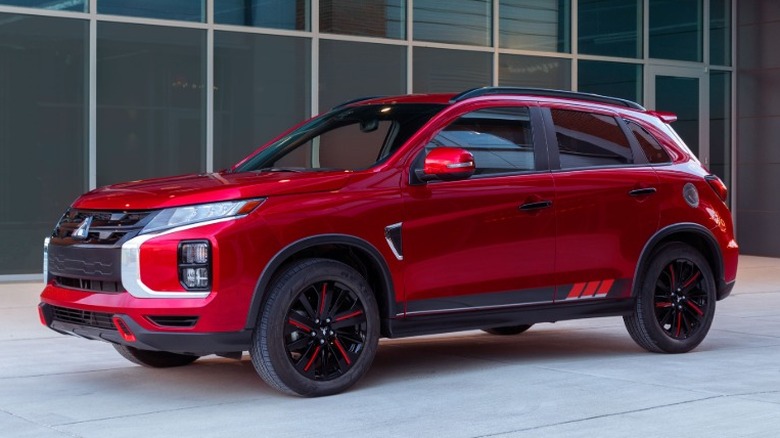
While the Mitsubishi Outlander Sport may not top the charts of poor deals by virtue of only selling for 5% above Mitsubishi's recommended pricing, there are plenty of reasons to consider it a bad choice, even compared to the other cars here. But let's start with the data: Consumer Reports' analysis shows that the Outlander Sport SE 2.0 sells for $30,026 on average, which is around $1,400 higher than its $28,595 MSRP.
Breaking past the $30,000 barrier isn't a good look, but it gets worse. The 2025 Outlander Sport available in America is not the new version that debuted this year in other markets, which has sharp new looks and a reasonably modern interior. Instead, the U.S.-market Outlander Sport is one of the most outdated new cars on the market, being essentially the same SUV that debuted in 2011 with a facelift (which is five years old itself).
What you're really getting for your $30,000 or so is an SUV with disappointing engines, an unimpressive interior, and outdated technology; it's a bad deal no matter how you look at it. Sure, you get a great 10-year or 100,000-mile warranty, but that's scant comfort for compromising on almost every other front.
Kia Soul
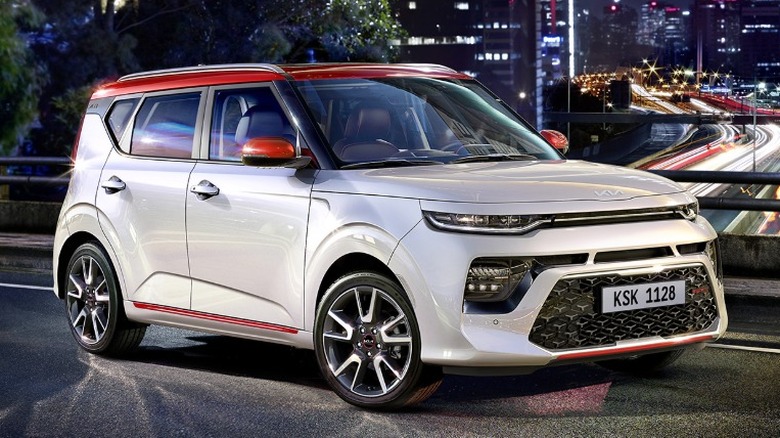
The 2025 Kia Soul, one of the two models affected by Kia's 2025 engine recall, goes on sale for an average of 5% more than it should, based on CR's market research. A $1,203 premium pushes the $24,090 Soul GT-Line trim to $25,293, higher than the MSRP for the subcompact crossover's top-end EX trim.
TrueCar data indicates that buyers are generally only paying a few hundred dollars more for said top-end EX trim, too, with the site recording an average total price of $25,720. That mostly corresponds to the difference in pre-destination MSRP for both models, admittedly, but if you're already paying more than $25,000 for the GT-Line, the extra outlay to get amenities like heated, eight-way power-adjustable seats as standard may just be worth it.
Like the Hyundai Kona Electric we discussed earlier, the Kia Soul hasn't seen many changes in recent years. Ever since Kia dropped the turbo for the 2023 Soul, the Korean automaker has mostly left it alone, only introducing a new EX Designer package for 2024 and a Soulmate special edition for 2025. You could save a few thousand dollars by opting for a 2023 Soul, which Kelley Blue Book suggests has a fair purchase price of $17,500 to $20,000, depending on trim.
GMC Sierra 1500
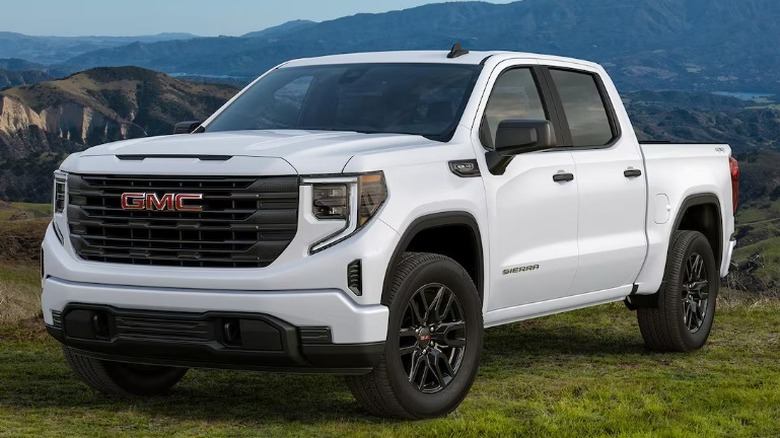
If you've paid any attention to the American vehicle market — or happened to glance at the sea of opinion pieces on the topic — it shouldn't surprise you that American pickups have gotten quite expensive over the years. There are many reasons for this price creep, not least the infamous 1960s Chicken Tax that's in effect to this day, but the bottom line is that buying a pickup is not a cheap affair. What makes it worse is when a pickup sells for more than its already-significant MSRP, such as the 2025 GMC Sierra 1500.
Consumer Reports' research points out that the GMC Sierra 1500 Crew Cab Pro 4WD, which has a $47,600 retail price before any fees and charges, is currently sold for 7% more than MSRP, pushing the final transaction price to $50,753. That's an increase of $3,153. Unlike some other vehicles on this list, the final price is actually higher than the $50,195 price with destination that GMC lists.
Given that the 2025 Chevy Silverado 1500 is essentially the same truck underneath, anyone seeking a utility pickup may be better served by the Chevy, which sells for less than $50,000 in the same configuration. If you're dead-set on a GMC Sierra, though, you might as well go all out on a luxury trim like the Sierra 1500 Denali.
MSRP Doesn't Represent Real Car Prices
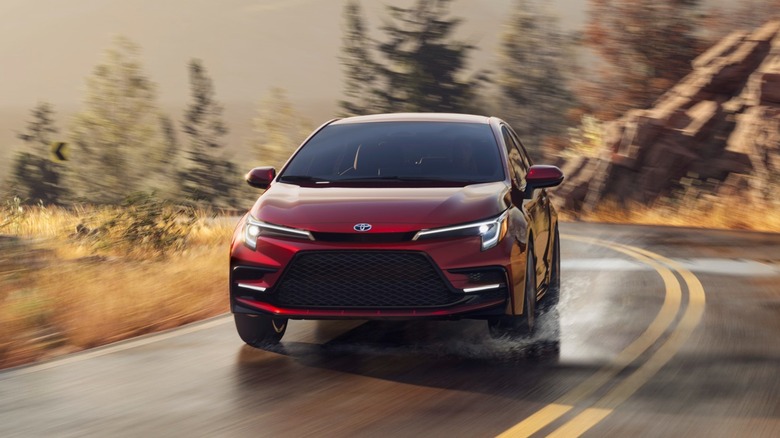
As we mentioned at the start, Consumer Reports' list of bad car deals compares transaction prices to the model and trim level's base MSRP, before any destination fees. While that is technically a car's MSRP, it's important to note that destination fees are mandatory. Thus, the actual price of a car (before any deals you can get from a dealer) will almost always be higher than the price that many manufacturers promote as the car's MSRP.
Once you take destination fees into account, some of these deals don't look as bad. Let's take the Mitsubishi Outlander Sport: CR considers it a bad deal because the average price of $30,026 is 5% higher than its $28,595 MSRP. However, if you go through Mitsubishi's online builder, the 2025 Outlander Sport 2.0 SE comes out to $30,595 once we include Mitsubishi's $1,595 destination fee.
Now, the prevalence of dealer incentives means that you likely won't pay $30,595, but adding the destination fee does render the notion that a Mitsubishi Outlander Sport 2.0 SE is a bad deal solely because of $30,000 transaction prices a bit problematic. Of course, there are plenty of reasons to consider the Outlander Sport (or any other cars on this list) a bad deal anyway, and that's fair; we're just pointing out that transaction prices may not be as good of a criterion as they may seem.
Want the latest in tech and auto trends? Subscribe to our free newsletter for the latest headlines, expert guides, and how-to tips, one email at a time.
Read the original article on SlashGear.
